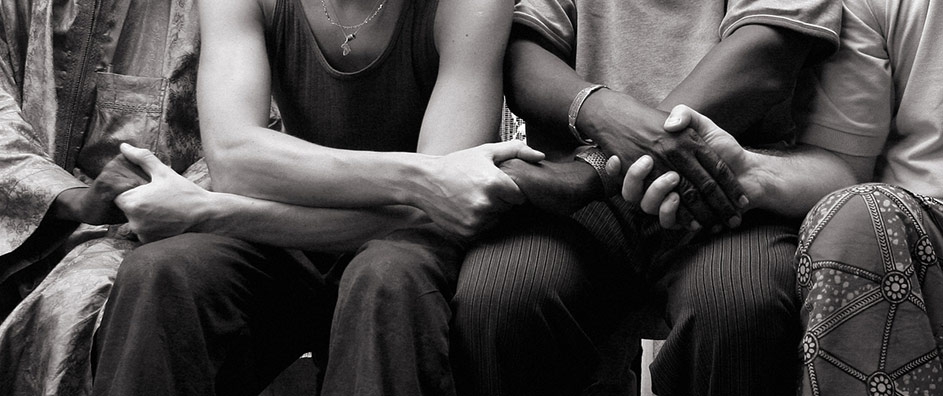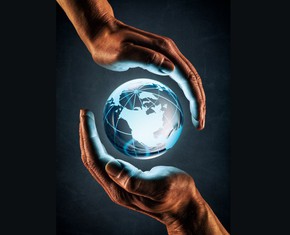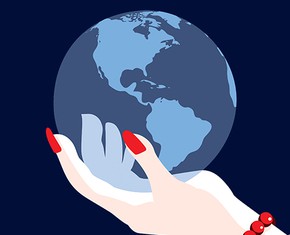The views expressed in our content reflect individual perspectives and do not represent the authoritative views of the Baha'i Faith.
You’ve heard this frequent refrain in media, in social networking, in political rhetoric and in classrooms: America is the greatest nation on Earth. Is it true?
As I noted in a previous essay in this series, the United States has also been called a grand experiment, a melting pot, a United Nations within a nation. That peculiar nature of our country, founded by immigrants and welcoming and including yet more immigrants of diverse tribes and origins, truly does make it unique.
Comedian and commentator Jon Stewart commented in a recent interview that, in setting up this “one nation” with (the ideal of) “liberty and justice for all,” we were going against millions of years of human evolution. We were setting up a set of federated units that flew in the face of millennia of tribalism. “It should be no surprise,” he said, “that it’s hard.”
I’d disagree with Mr. Stewart in just one particular—as a Baha’i, I believe that our evolution has drawn us ever closer to a recognition of our human unity through overcoming our reflexive tribalism. Reversing the process of integration means bucking evolution—to de-evolve.
If we want to continue to progress as a nation that is part of a larger global network, the United States must solve the problem of tribalism. We have come too far in our development as a species to disentangle ourselves from each other’s lives genetically, socially, administratively, emotionally or spiritually. Indeed, it makes no sense to do so, for we came from one source, diverged, and now live in a world in which segregation is increasingly impossible. Attempts to artificially impose such segregation will, instead, bring about disintegration:
The persistent neglect by the governing bodies and the masses of the American people of the ravages of racism jeopardizes both the internal order and the national security of the country.
From the day it was born the United States embraced a set of contradictory values. The founding fathers proclaimed their devotion to the highest principles of equality and justice yet enshrined slavery in the Constitution. Slavery poisoned the mind and heart of the nation and would not be abolished without a bloody civil war that nearly destroyed the young republic. The evil consequences of slavery are still visible in this land. They continue to affect the behavior of both Black and White Americans and prevent the healing of old wounds.
Healing the wounds and building a society in which people of diverse backgrounds live as members of one family are the most pressing issues confronting America today. Her peace, her prosperity, and even her standing in the international community depend to a great extent on the resolution of this issue.
That the virulence of the race issue in America attracts the attention of the entire world should spur this country to an unprecedented effort to eliminate every vestige of prejudice and discrimination from her midst. America’s example could not fail to have a profound influence on world society, nor could it fail to assist the establishment of universal peace. “For the accomplishment of unity between the colored and white,” the Baha’i writings proclaim, “will be a cause of the world’s peace.” — The Vision of Race Unity, Part II.
It is in this ability to influence the progress of the entire world that our potential national greatness—and our potential shame—lie. As a nation, we can influence the world for ill or for good. We can offer an example of separation, suspicion, open hatred and disintegration; or we can demonstrate our ability to lead humanity into the next phase of its maturity.
The Guardian of the Faith, Shoghi Effendi, writing in the 1930’s about the potential of America, said that American Baha’is should not:
…imagine for a moment that for some mysterious purpose or by any reason of inherent excellence or special merit Baha’u’llah has chosen to confer upon their country and people so great and lasting a distinction. It is precisely by reason of the patent evils which, notwithstanding its other admittedly great characteristics and achievements, an excessive and binding materialism has unfortunately engendered within it that the Author of their Faith and the Center of His Covenant have singled it out to become the standard-bearer of the New World Order envisaged in their writings. – The Advent of Divine Justice, p. 19.
The Baha’i teachings say that America can lead the way toward global unity—but because the United States is “prey to one of the most virulent and long-standing forms of racial prejudice, and notorious for its political corruption, lawlessness and laxity in moral standards,” this nation has the mandate to show the rest of world that human solidarity and unity is not only possible, but forms an inevitable stage in our evolution as a species.
In other words, because the challenge is so Herculean, Americans can potentially exercise a unique influence on other nations and “be a cause of the world’s peace”—if we can find ways to unite.
















Comments
Sign in or create an account
Continue with Googleor